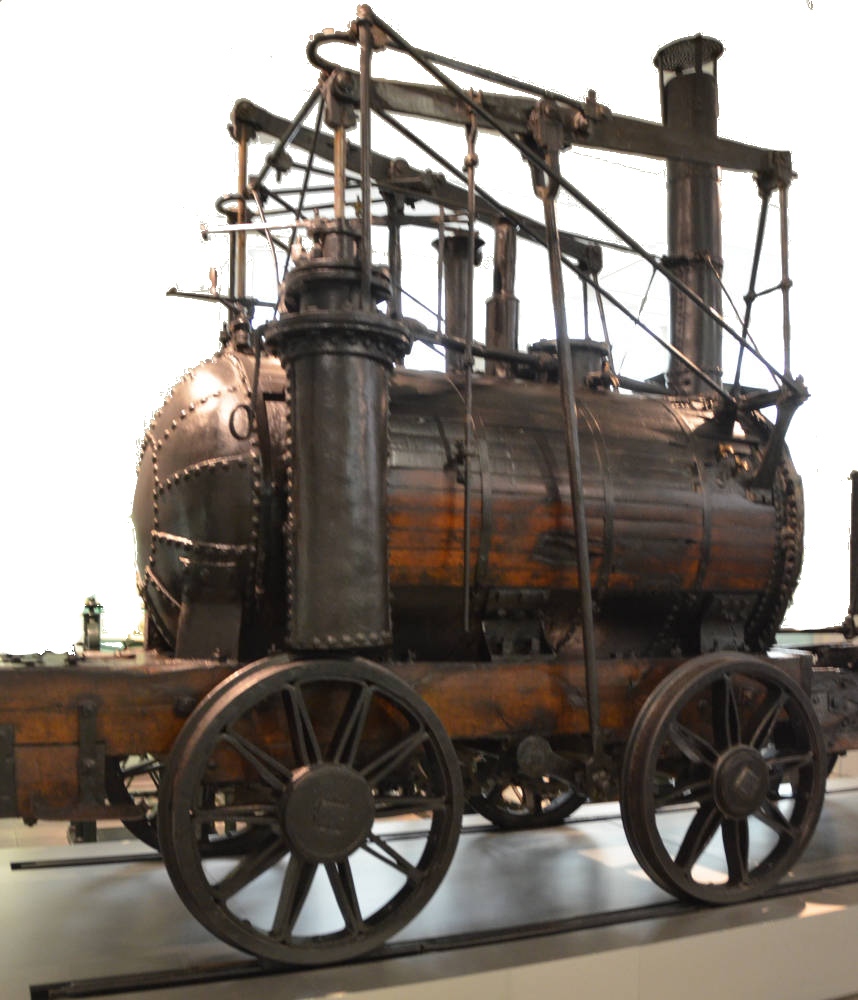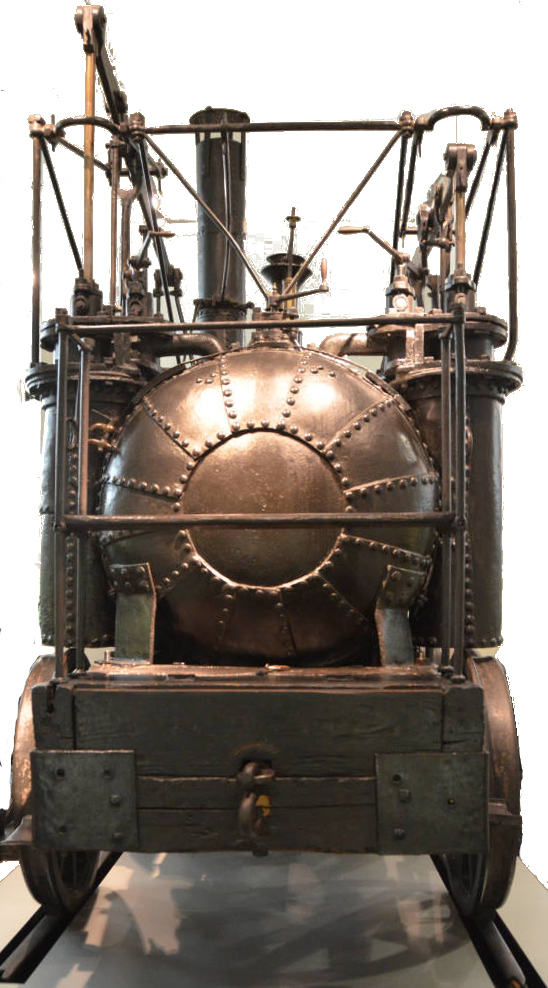[Spencer's “Progress: Its Law and Cause” originally appeared in the British Quarterly. This text has comes from the Project Gutenberg online version of the Everyman edition of Essays of Education — George P. Landow]

Richard Trevithick's self-propelling steam engine. [Click on image to enlarge it.]
To trace the effects of steam-power, in its manifold applications to mining, navigation, and manufactures of all kinds, would carry us into unmanageable detail. Let us confine ourselves to the latest embodiment of steam-power—the locomotive engine.



Puffing Billy. National Science Museum, London. Photographs by George P. Landow 2003, 2014. [Click on images to enlarge them.]
This, as the proximate cause of our railway system, has changed the face of the country, the course of trade, and the habits of the people. Consider, first, the complicated sets of changes that precede the making of every railway—the provisional arrangements, the meetings, the registration, the trial section, the parliamentary survey, the lithographed plans, the books of reference, the local deposits and notices, the application to Parliament, the passing Standing-Orders Committee, the first, second, and third readings: each of which brief heads indicates a multiplicity of transactions, and the development of sundry occupations—as those of engineers, surveyors, lithographers, parliamentary agents, share-brokers; and the creation of sundry others—as those of traffic-takers, reference-takers. Consider, next, the yet more marked changes implied in railway construction—the cuttings, embankings, tunnellings, diversions of roads; the building of bridges, and stations; the laying down of ballast, sleepers, and rails; the making of engines, tenders, carriages, and waggons: which processes, acting upon numerous trades, increase the importation of timber, the quarrying of stone, the manufacture of iron, the mining of coal, the burning of bricks: institute a variety of special manufactures weekly advertised in the Railway Times; and, finally, open the way to sundry new occupations, as those of drivers, stokers, cleaners, plate-layers, etc., etc. And then consider the changes, more numerous and involved still, which railways in action produce on the community at large. The organisation of every business is more or less modified: ease of communication makes it better to do directly what was before done by proxy; agencies are established where previously they would not have paid; goods are obtained from remote wholesale houses instead of near retail ones; and commodities are used which distance once rendered inaccessible. Again, the rapidity and small cost of carriage tend to specialise more than ever the industries of different districts—to confine each manufacture to the parts in which, from local advantages, it can be best carried on. Further, the diminished cost of carriage, facilitating distribution, equalises prices, and also, on the average, lowers prices: thus bringing divers articles within the means of those before unable to buy them, and so increasing their comforts and improving their habits. At the same time the practice of travelling is immensely extended. Classes who never before thought of it, take annual trips to the sea; visit their distant relations; make tours; and so we are benefited in body, feelings, and intellect. Moreover, the more prompt transmission of letters and of news produces further changes—makes the pulse of the nation faster. Yet more, there arises a wide dissemination of cheap literature through railway book-stalls, and of advertisements in railway carriages: both of them aiding ulterior progress.


Traveling third class and first. [Click on images to enlarge them and for additional information]
And all the innumerable changes here briefly indicated are consequent on the invention of the locomotive engine. The social organism has been rendered more heterogeneous in virtue of the many new occupations introduced, and the many old ones further specialised; prices in every place have been altered; each trader has, more or less, modified his way of doing business; and almost every person has been affected in his actions, thoughts, emotions.
Related material
- Spencer on the Development of the Arts as an Example of Evolution
- The Growth of Victorian Railways
- The Social Effects of Victorian Railways
Last modified 19 November 2019